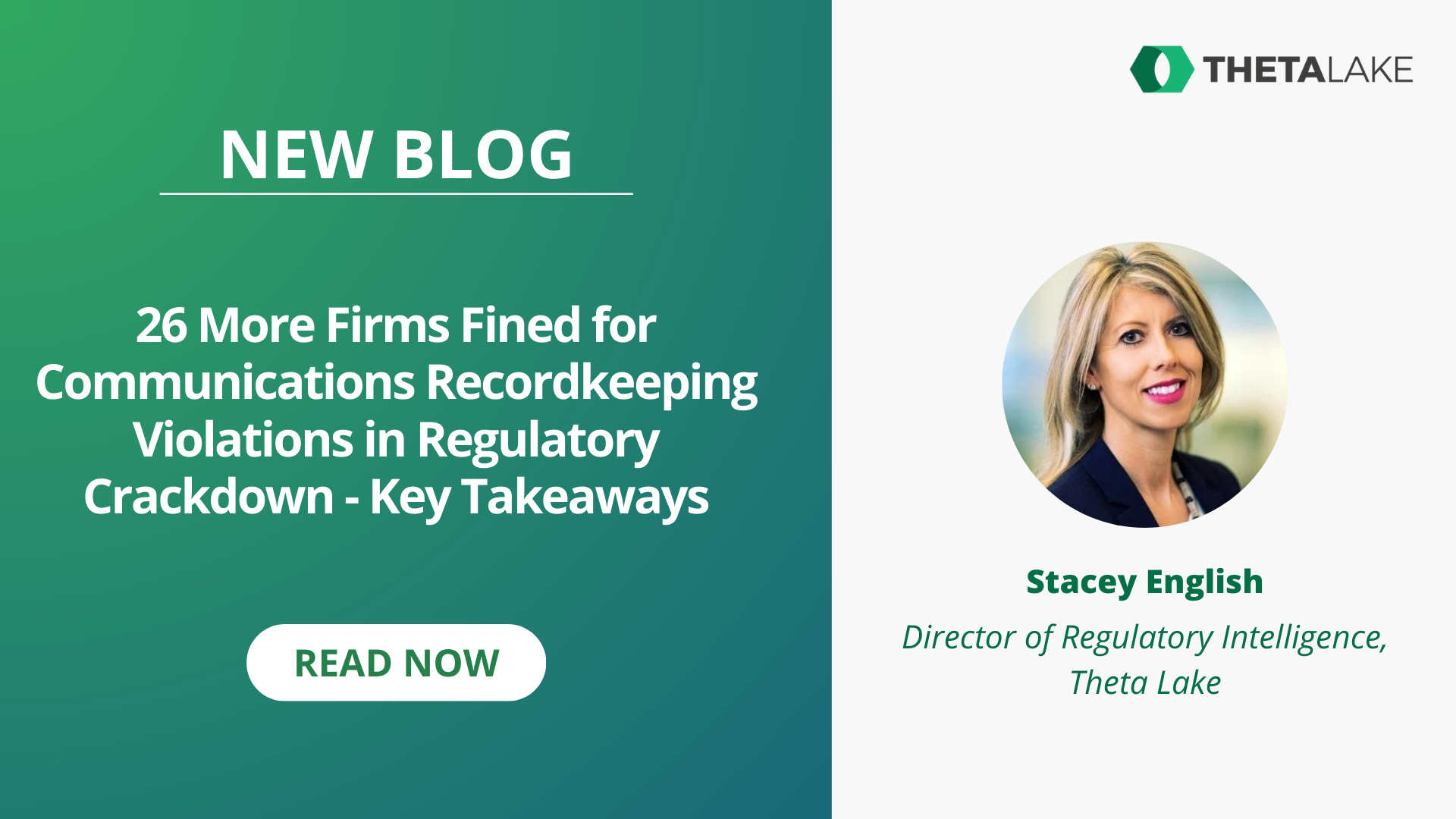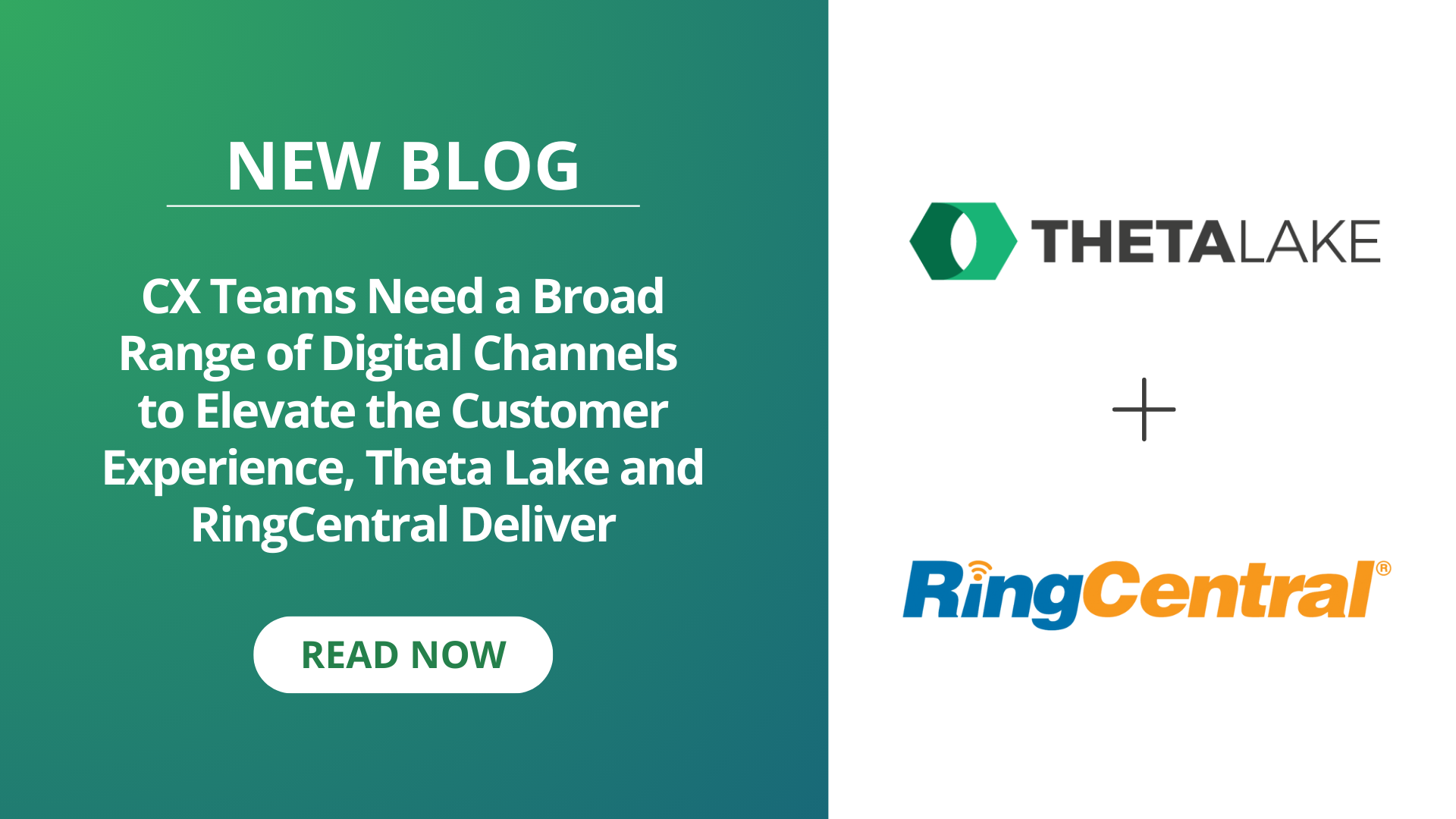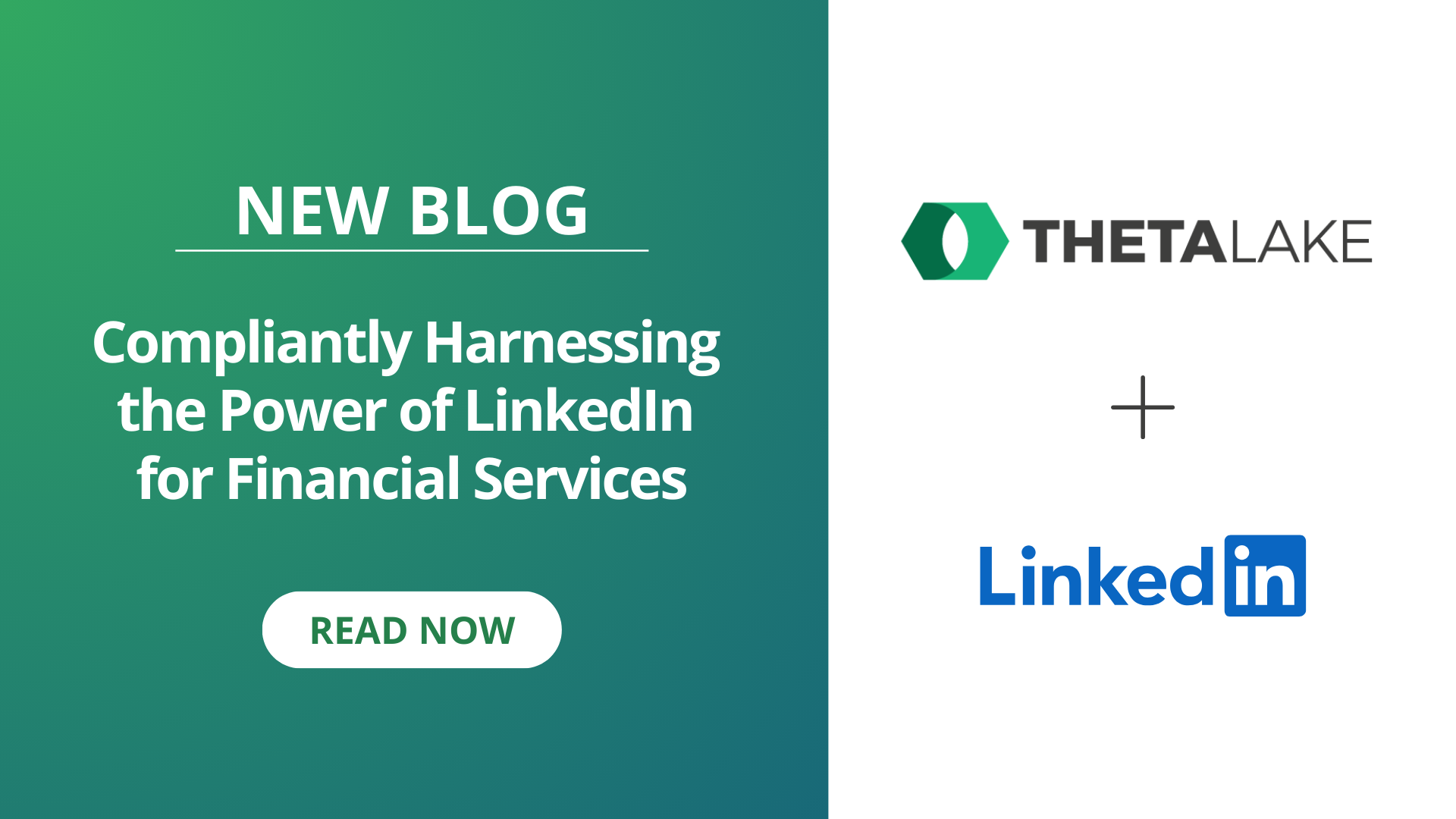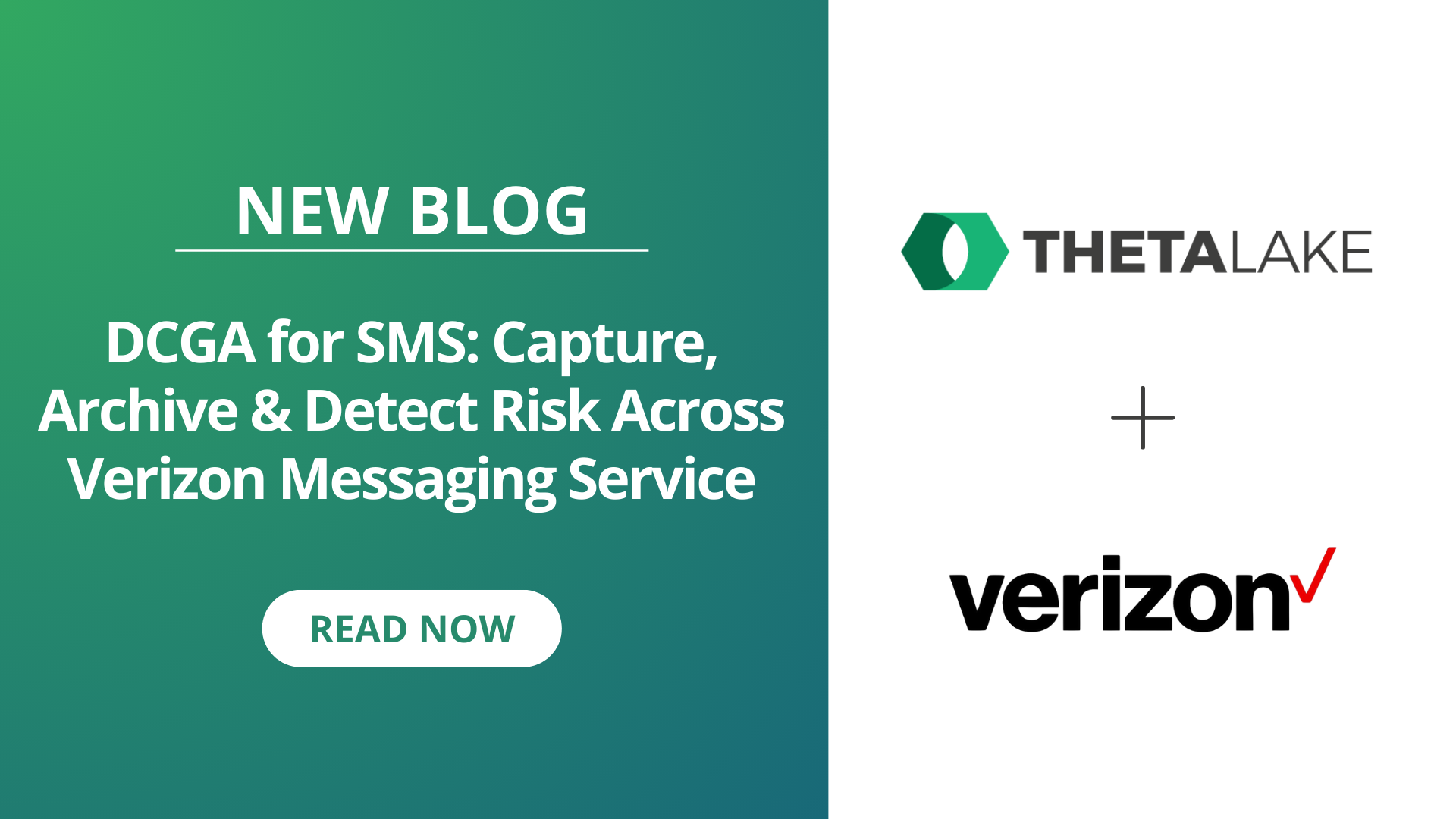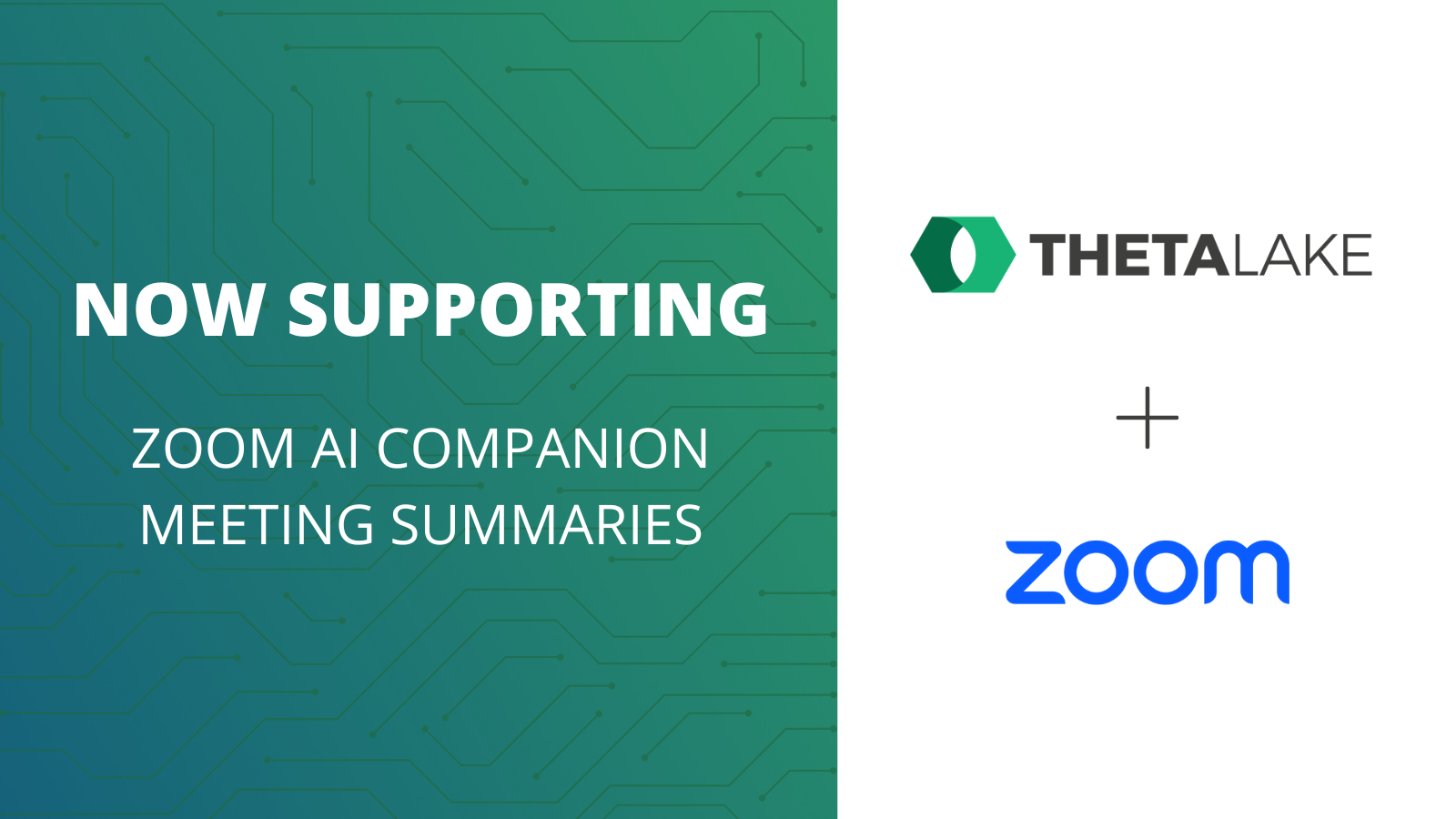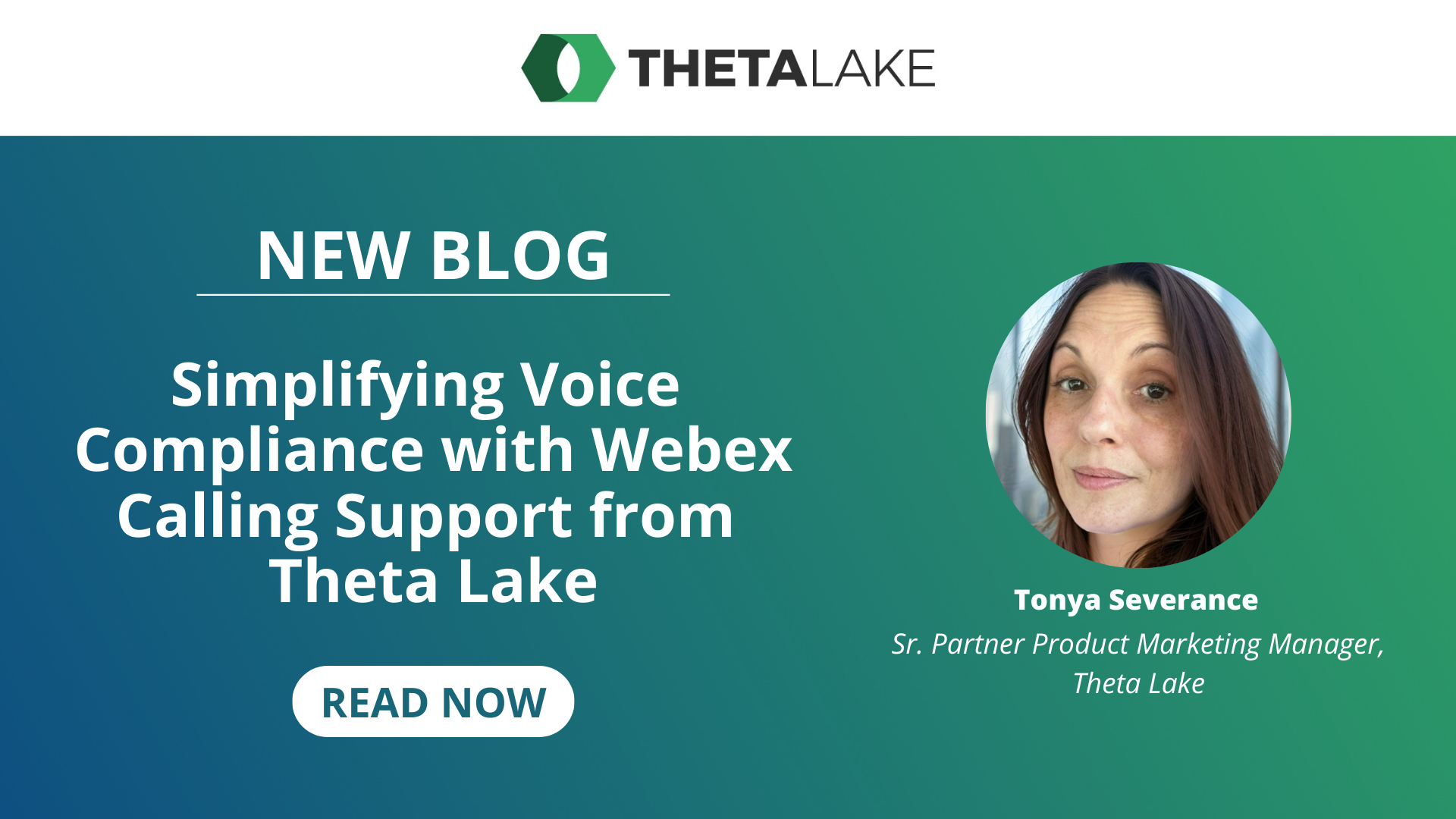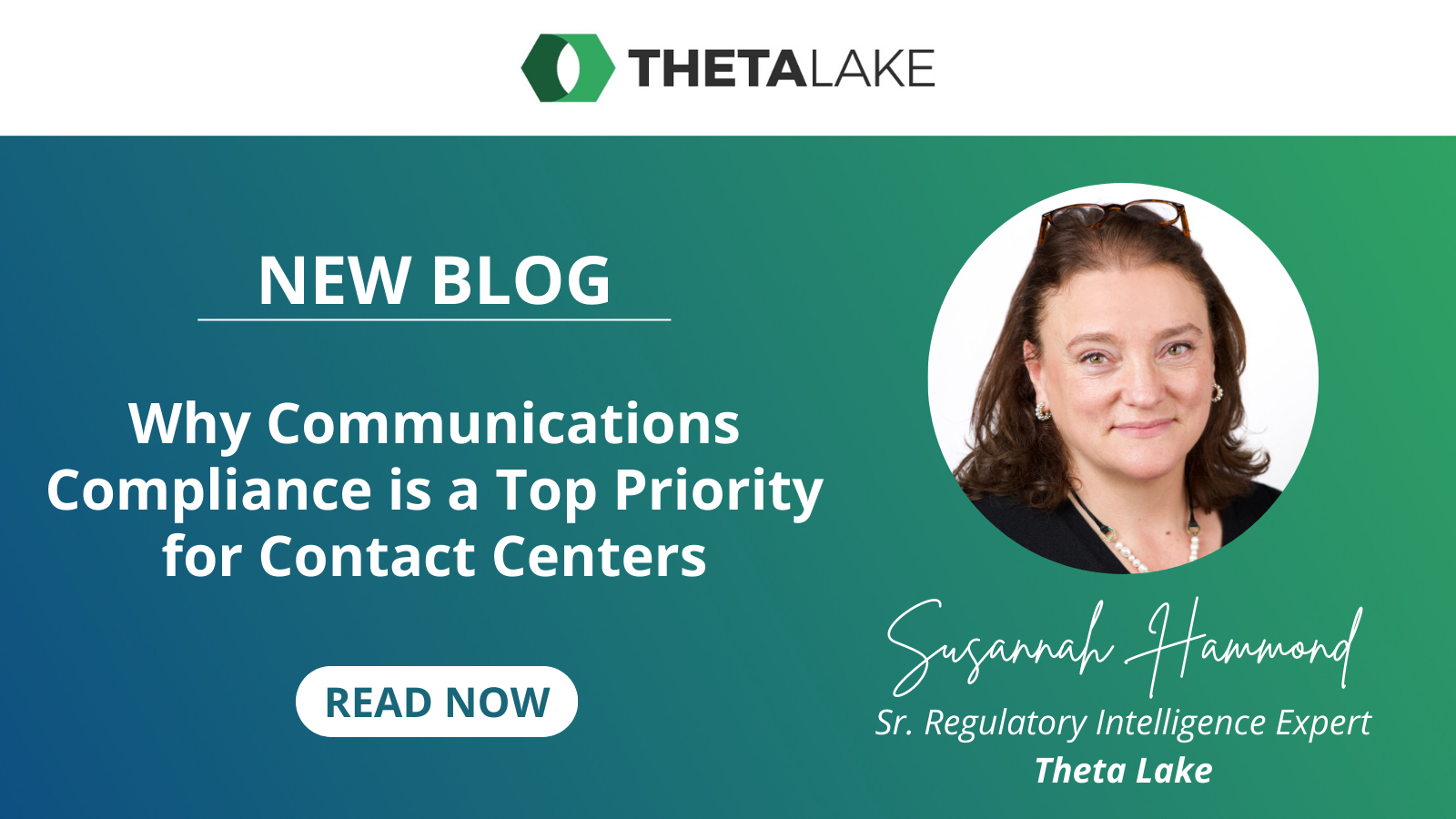Responding to governance events, like audits, investigations and e-discovery, in the era of unified communications and collaboration (UCC) is hard. IT stakeholders, such as those responsible for compliance archive storage and architecture, responding to search requests from compliance and legal, are overwhelmed by the volume and complexity of today’s modern communications and by the constraints of heritage archiving investments. Unfortunately for those involved, both on the IT and compliance/legal side, search and discovery might consist of a “best guess” effort making it challenging to identify risk or wrongdoing, form a judgment on the merits of a case and at its worse, suffer fines, sanctions, negative verdicts and damage to the organization’s brand and reputation.
Compliance Search and Discovery for Unified Communications Shouldn’t Be So Hard
26 More Firms Fined for Communications Recordkeeping Violations in Regulatory Crackdown - Key Takeaways
The SEC and the CFTC have announced charges against another 26 broker-dealers and investment advisers for significant recordkeeping failures. The combined $477.75 million in fines add to the penalties already levied for widespread and longstanding failures to maintain and preserve electronic communications bringing the total to over $3 billion.
The findings from this latest round of actions mirror those of other recent enforcement cases, and serve as a stark reminder that the obligations and ongoing regulatory scrutiny on recordkeeping and supervision haven’t gone away.
Navigating SMS Compliance with 1GLOBAL Integration
In today’s fast-paced digital world, SMS has become an indispensable tool for communication, especially in financial services where timely and secure messaging is crucial. However, the regulatory landscape governing SMS communications is complex and stringent.
CX Teams Need a Broad Range of Digital Channels to Elevate the Customer Experience, Theta Lake and RingCentral Deliver
Managing customer interactions across multiple channels can be challenging. That’s why we’re excited to introduce two powerful new integrations between Theta Lake and RingCentral: digital and omnichannel support for RingCX Digital and RingCentral Contact Center. These integrations are designed to streamline your digital communications, ensuring compliance and efficiency across all platforms.
Compliantly Harnessing the Power of LinkedIn for Financial Services
LinkedIn has solidified its position as an indispensable tool for professionals, particularly within the financial services sector. Known for its vast networking capabilities, LinkedIn provides a platform where financial professionals can connect, share insights, and foster business relationships. With over 740 million users globally, it’s no surprise that LinkedIn is where a significant amount of financial services business is conducted. In fact, LinkedIn reports that over 60% of its members in financial services engage with content on the platform daily, highlighting its importance as a business tool.
DCGA for SMS: Capture, Archive & Detect Risk Across Verizon Messaging Service
In the rapidly evolving landscape of business communication, Verizon stands out as a premier carrier, serving millions of businesses with reliable and efficient network services. According to a recent report, Verizon boasts over 99 million postpaid connections, solidifying its position as a carrier of choice for businesses across various industries. Among these, the financial services sector significantly relies on Verizon’s robust network to facilitate seamless and secure communication, particularly through SMS.
Theta Lake: Pioneering DCGA for Zoom AI Companion Meeting Summaries
In today's fast-paced business world, productivity is paramount.
AI-generated communications tools, particularly note-taking and meeting summaries, are revolutionizing the way businesses operate. These tools automatically capture key points, action items, and decisions, allowing team members to focus on the discussion rather than scribbling notes. This not only saves time but also ensures that no crucial detail is missed.
Simplifying Voice Compliance with Webex Calling Support from Theta Lake
In today’s ever-evolving business environment, balancing regulatory compliance with efficient communication is a challenging task, particularly for financial services organizations. That’s why we’re excited to introduce the powerful integration with Webex Calling, designed to make voice communications compliance easier than ever.
Can You Hear Me Now? Voice Compliance Takes Center Stage at XLoD Global 2024
XLoD Global 2024, held in NYC on June 11 brought together regulatory intelligence leaders, entrepreneurs, and tech enthusiasts from around the globe focused on organization experiences, best practices and technology approaches to the three lines of defense for risk and audit scenarios. While there were a broad array of topics covered- from AI and blockchain to cybersecurity and IoT, the issue of voice compliance- and how to best approach it was a topic that surfaced itself in numerous panel sessions, roundtables and customer interactions. As seen in one session, 67% of the audience is seeing an increase in voice compliance regulatory inquiries and exams.
Why Communications Compliance is a Top Priority for Contact Centers
Contact centers are, by definition, all about communication. And the richness of the communication has been enhanced immeasurably by the deployment of unified communication and collaboration (UCC) tools with their wide range of features and functionality. That said, firms have not always been able to take full advantage of much needed functionality due to potential compliance concerns which have led some users to switch features off. UC providers are alive to the need from customers and are prioritizing helping by providing more ways to solve recordkeeping and supervision needs - the recent news from Zoomon its approach serves as a positive example on what firms can (and should) expect from their communication and collaboration providers.



